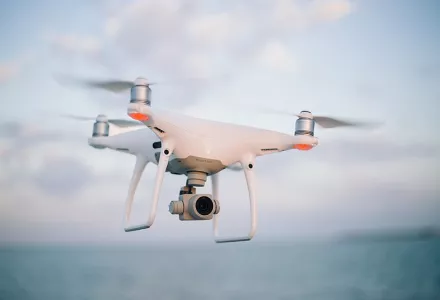Bernard Hudson, CEO, Looking Glass Technology and Former Chief of Counterterrorism, Central Intelligence Agency
Bernard Hudson is a non-resident Fellow at the Belfer Center where he supports the Intelligence Project and the Saudi and Gulf Cooperation Council Security Project. The project explores the breadth and depth of security challenges facing the region and how these states and their allies are responding.
Mr. Hudson is the President of Looking Glass Limited which specializes in drone technology, business applications and equity investing in the same.
Prior to joining the private sector Mr. Hudson served for 28 years as an operations officer in the Central Intelligence Agency. His final position was as Chief of Counterterrorism where he directed all aspects of CIA's global war on terrorism and is a recognized expert on international negotiation, strategic development, crisis management, risk assessment and the Middle East. He served multiple assignments abroad, including three in key leadership positions. During his career he received the National Intelligence Medal of Valor, the Director of CIA’s Award for Excellence, the Intelligence Medal of Merit and the Intelligence Collector of the Year. Mr. Hudson is a US Army veteran.
Christopher Hewlett, UAS and Program Subject Matter Expert, Deloitte US Drone Services
Christopher Hewlett is a retired commander from the US Navy where he had extensive duties in naval aviation both as a pilot and senior manager. He helped design and implement unmanned aerial systems programs for the Department of Defense. Mr. Hewlett founded and runs Deloitte Consulting's UAV advisory services where he works closely with policy makers, drone industry experts and companies seeking to leverage this new technology.
Faine Greenwood, Drone consultant and specialist, with a special focus on humanitarian aid and ethical data
Faine Greenwood conducts research on the use of unmanned aerial vehicles and spatial information in humanitarian aid. Greenwood’s work centers in particular on using drone data for disaster response, defining privacy risks posed by the civilian use of drones in disaster, and the use of small drones by non combatants in conflict and complex emergency environments. Greenwood has conducted research on drone technology and disaster response at the World Bank, the World Economic Forum, the International Federation of the Red Cross, the Signal Program at the Harvard Humanitarian Initiative, New America, and the Massachusetts Department of Transportation, among others. Greenwood is a regular contributor to Slate and Foreign Policy on issues related to drones, data ethics, and disaster.


